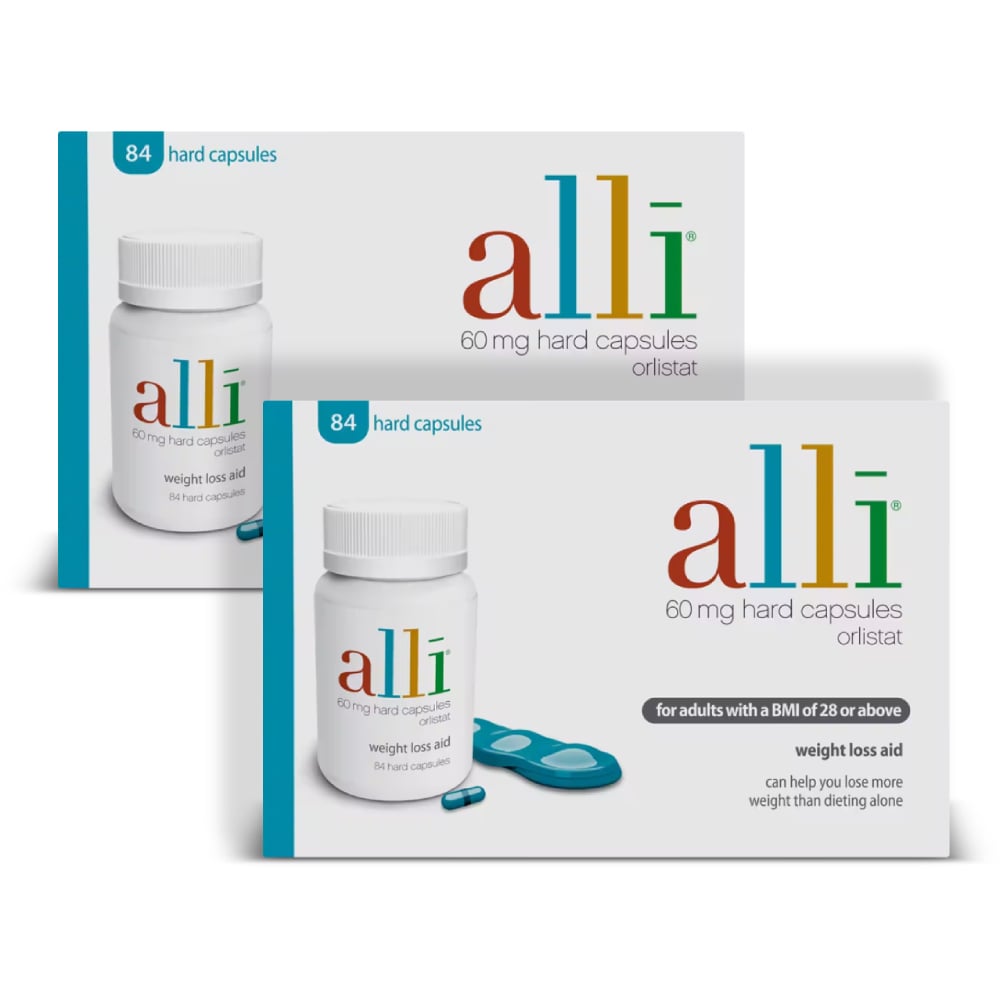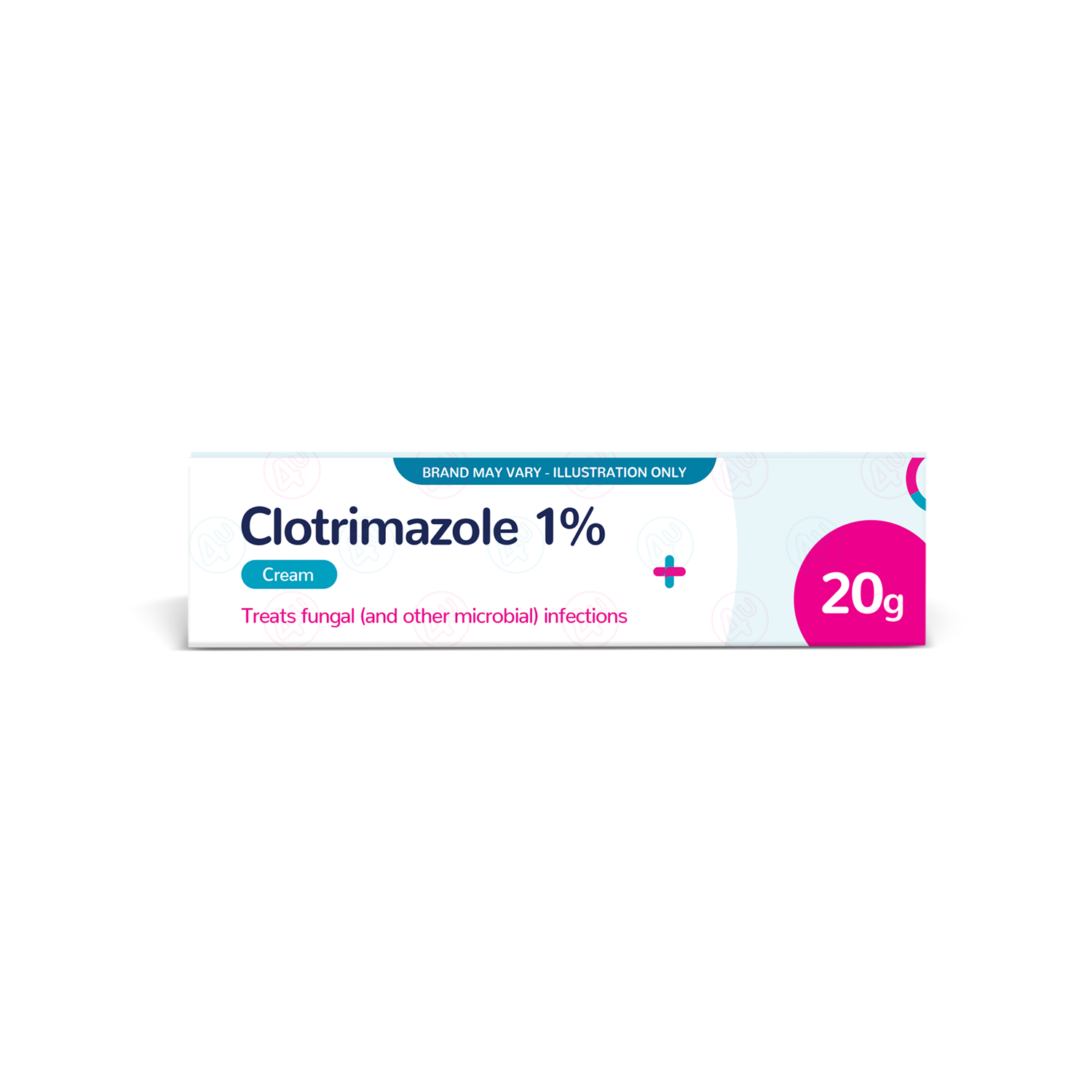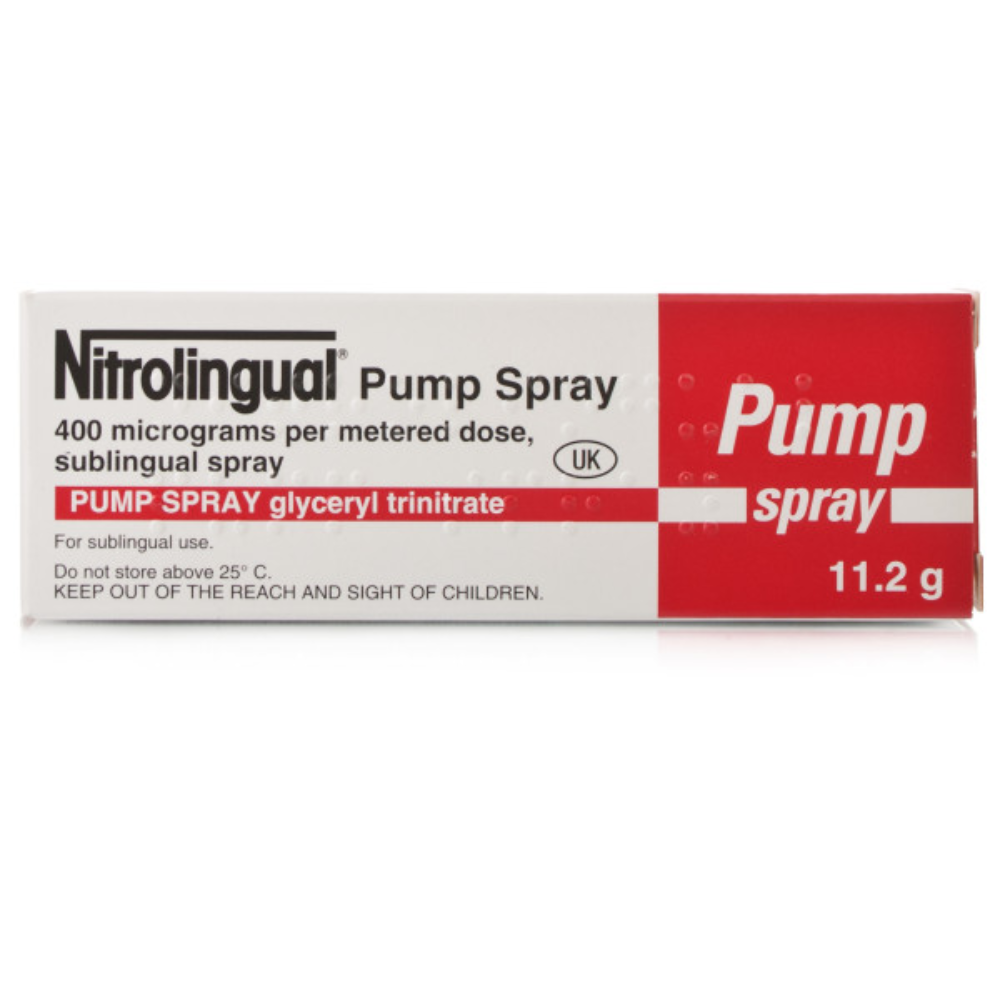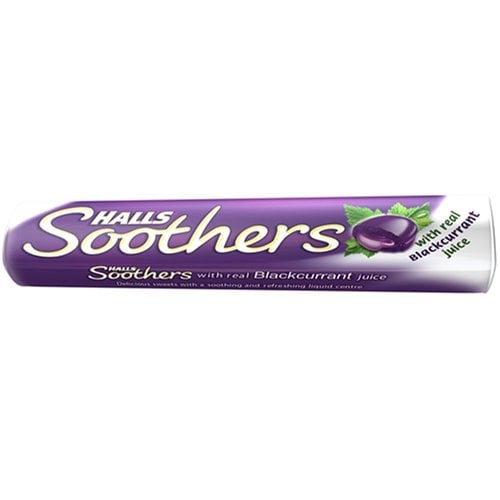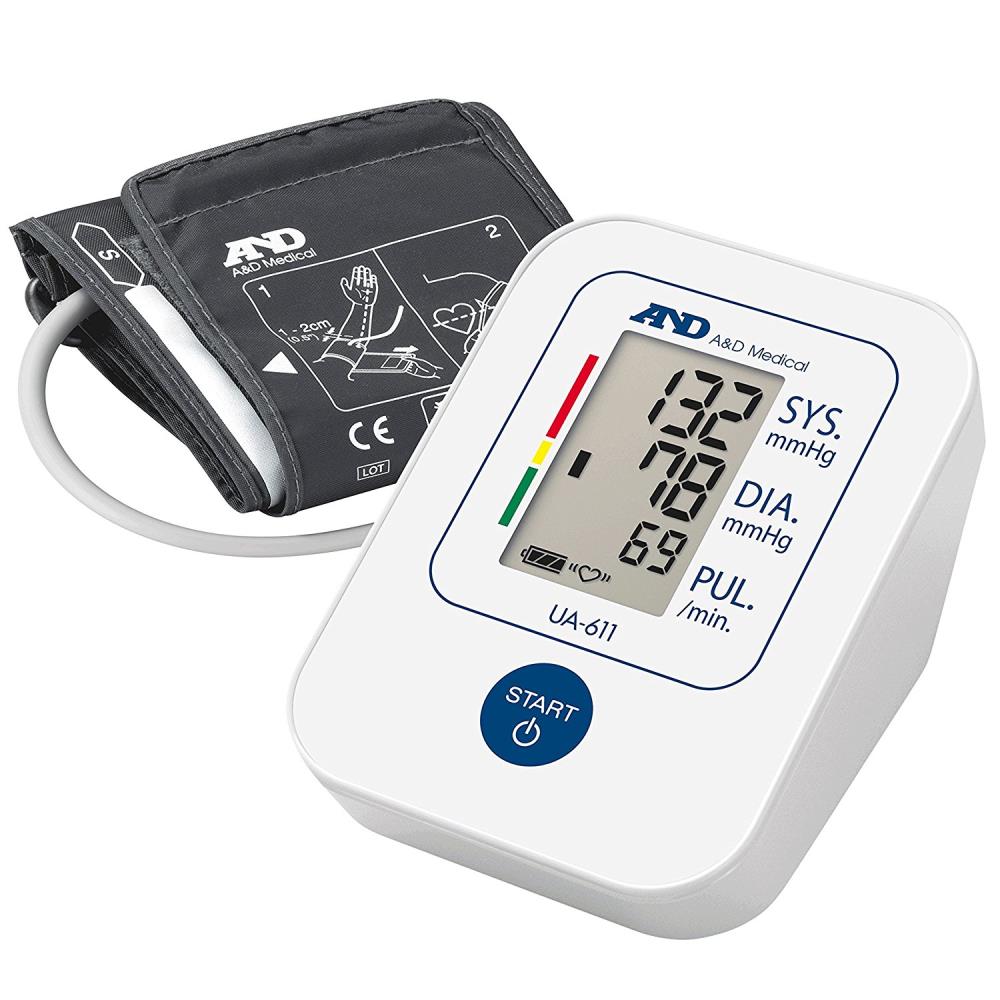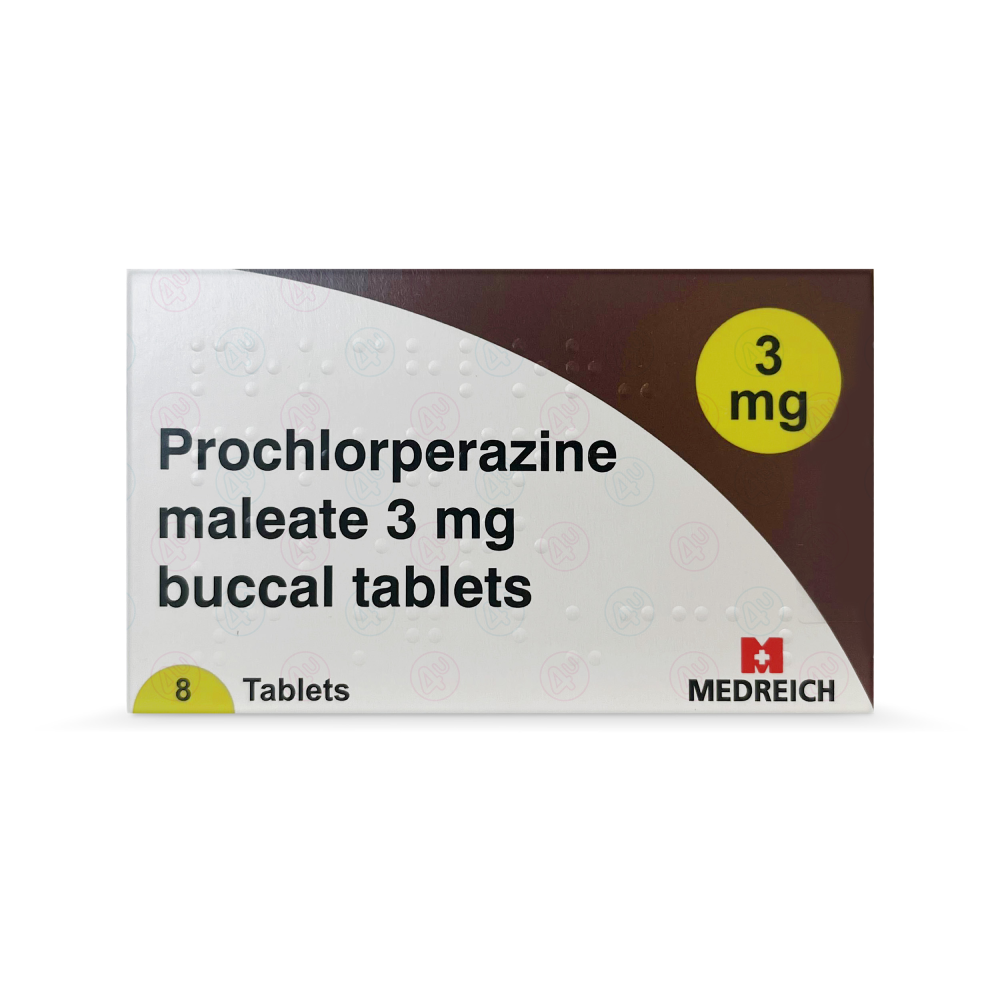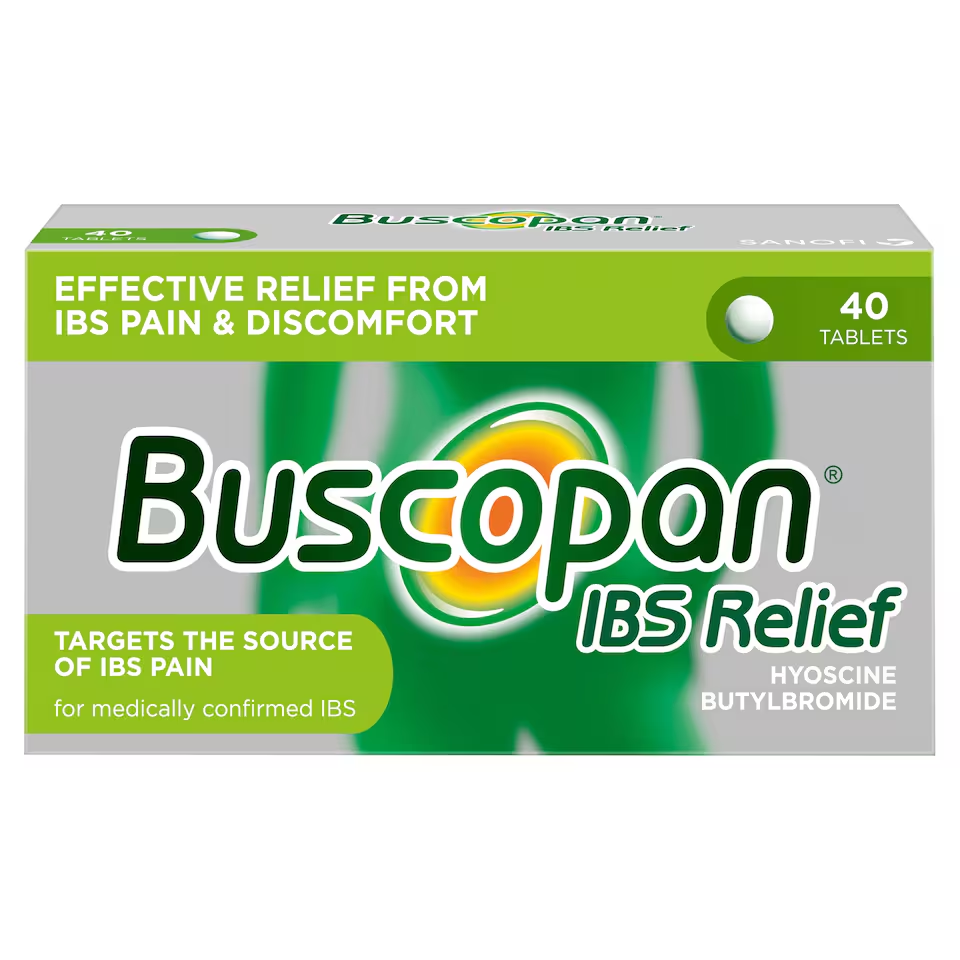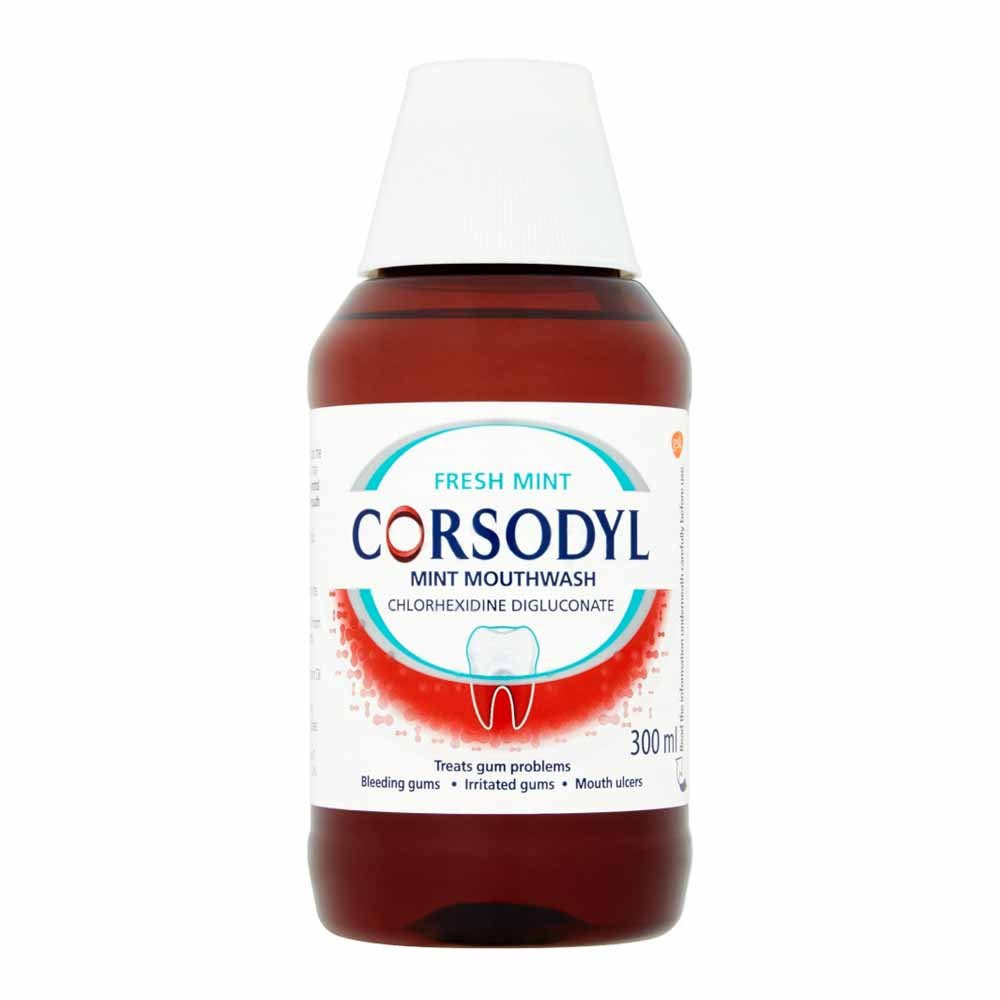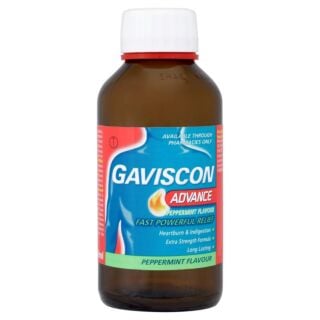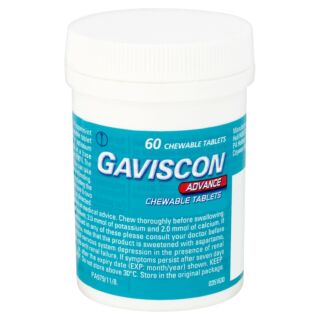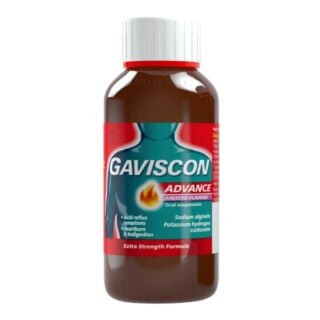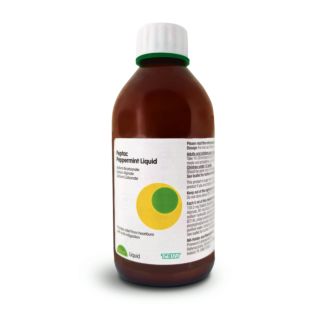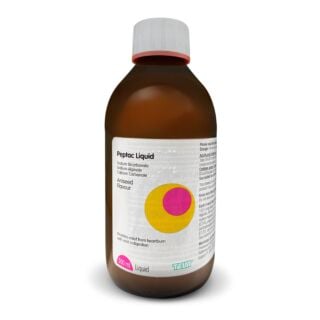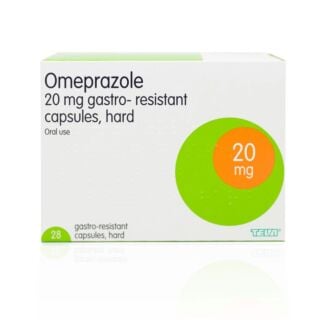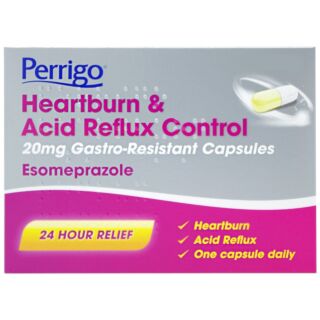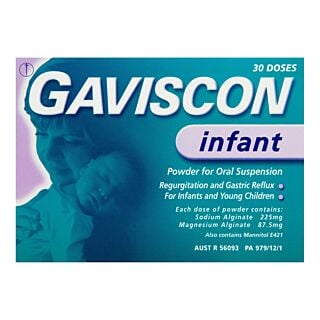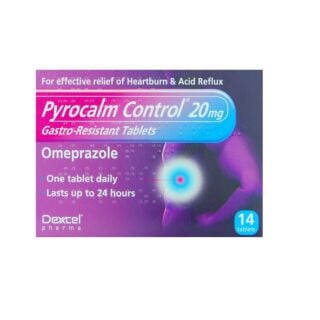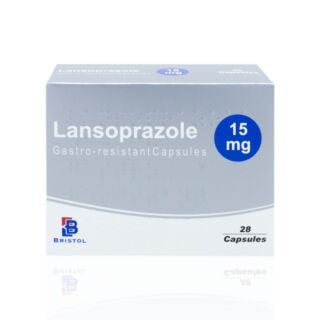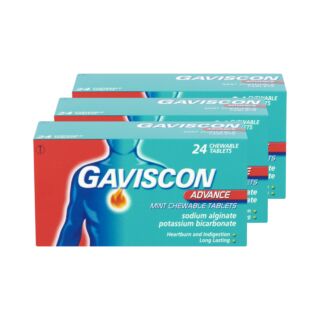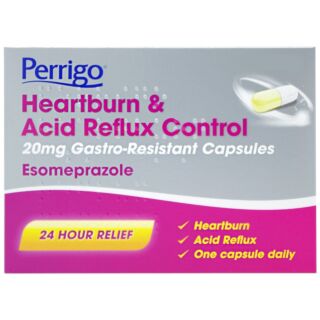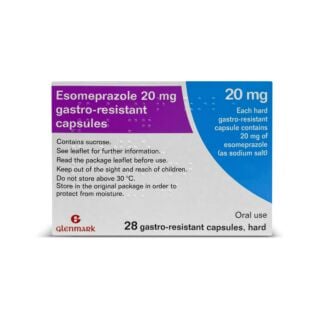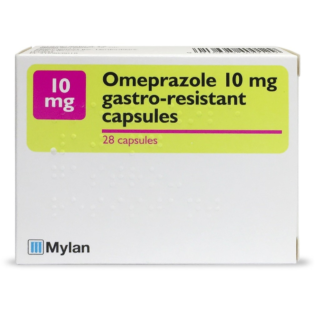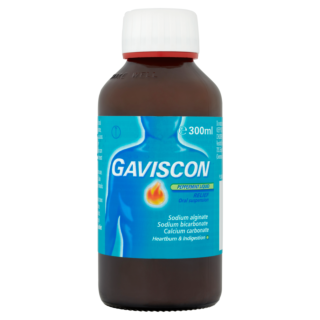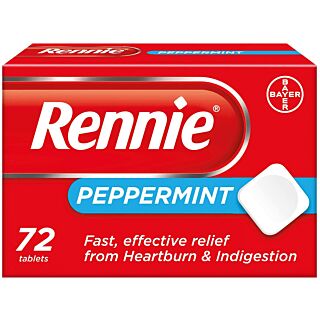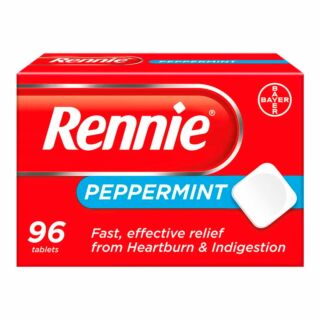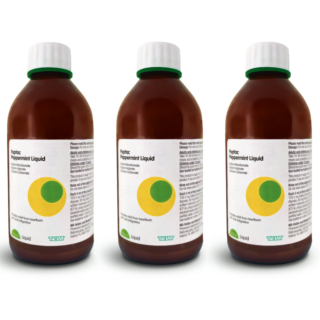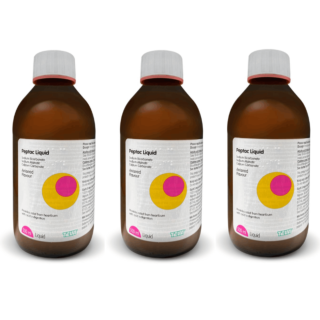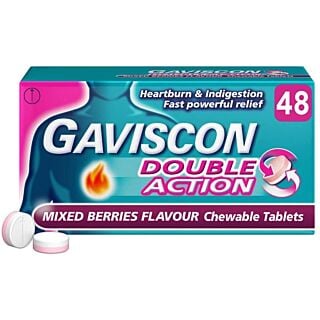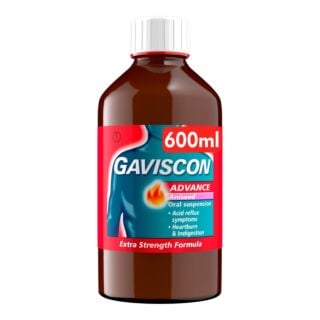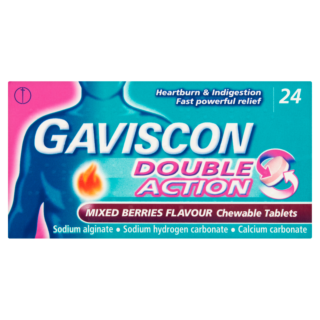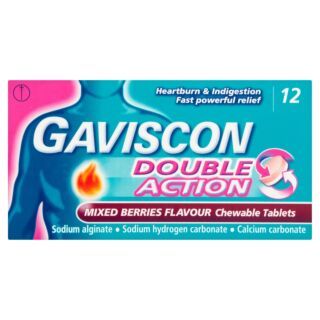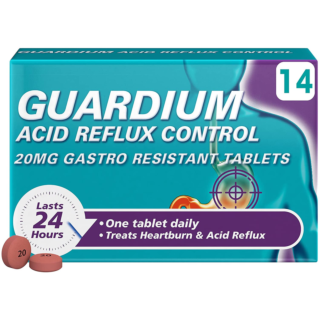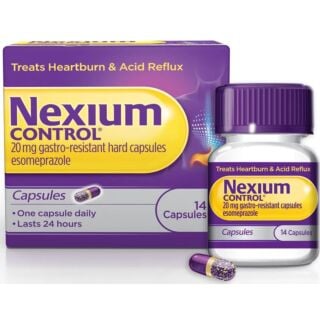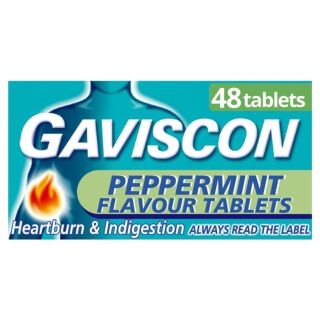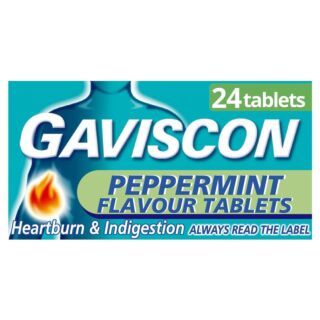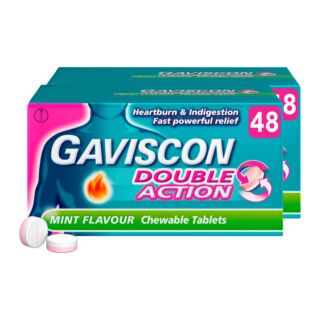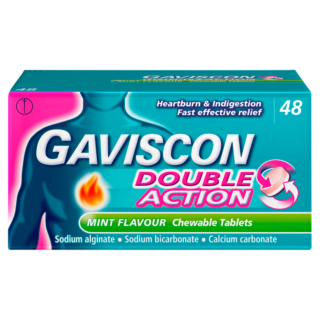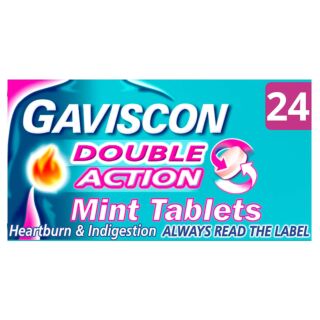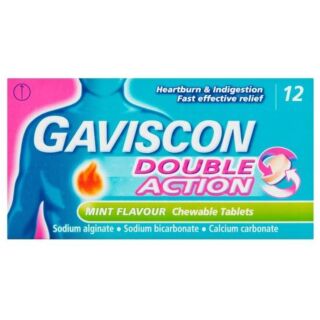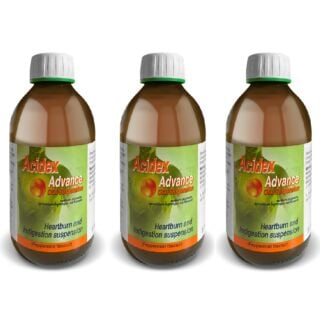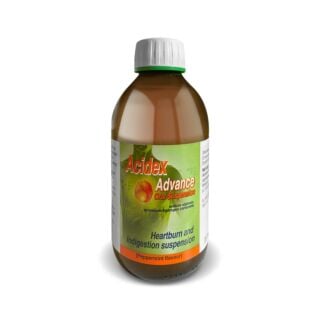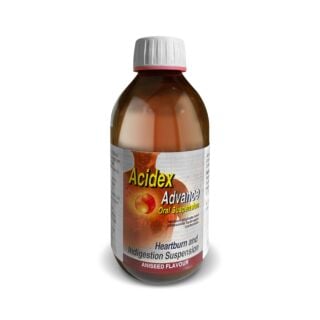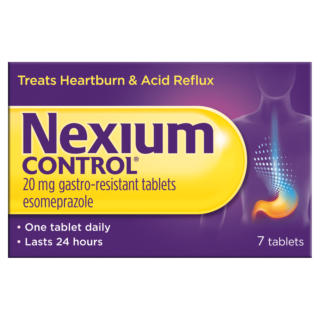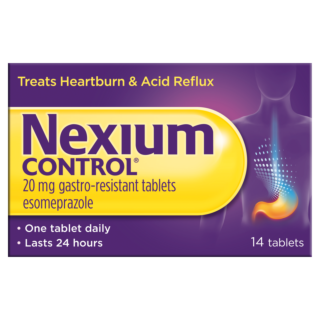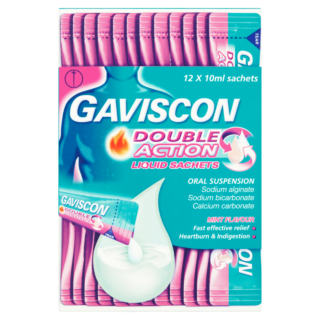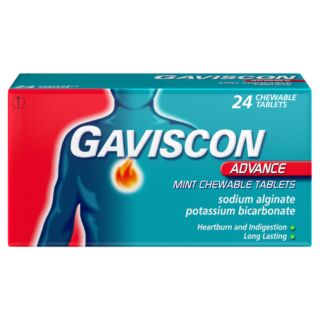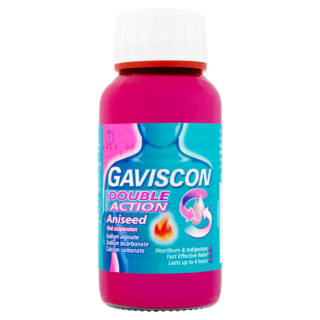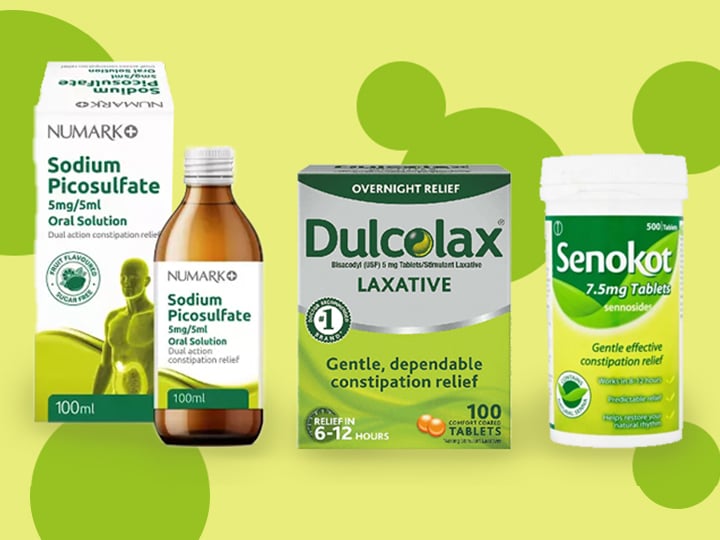Acid Reflux & Heartburn
Acid reflux is one of the most common conditions to affect people in the UK, with one in four adults experiencing symptoms of reflux like heartburn[1]. If you’re feeling a rising pain in your chest after eating or have a persistent cough, then you could be one of those suffering. … Read More See less
What most people don’t often realise is that acid reflux can be caused or worsened by certain lifestyle and dietary factors in their day-to-day life. Even fewer know that if it’s persistent, it could be gastro-oesophageal reflux disease (GORD) and can be treated with over-the-counter or prescribed medication.
Below, you can find everything you need to know about heartburn, acid reflux and GERD/GORD, including a range of treatment options.
Related Guides
What is acid reflux?
Reflux is the regurgitation of some stomach contents, including gastric acid, into the oesophagus. If you frequently get reflux, it may instead be referred to as gastro-oesophageal reflux disease (often known as GERD or GORD in the UK).Whenever you eat or drink, it goes down your oesophagus and into your stomach. The body has a muscular ring (otherwise known as the lower oesophageal sphincter) that should ensure this process is one-way. Acid reflux occurs when this ring doesn’t work as intended and the acid is sent in the opposite direction.
Your stomach naturally produces acid to break down food aiding digestion. The lining of the stomach is protected from the acid by a thick layer of mucus. However, if enough acid is sent back up the oesophagus, this can cause pain, which is felt as heartburn.
Non-erosive reflux disease (NERD)
The most common form of gastro-oesophageal reflux is NERD, which affects roughly 70% of those who have it[2]. Typical symptoms are reflux and heartburn, but without any visible damage to the oesophageal lining such as ulcers or erosions.
What is heartburn?
Whilst often associated with one another, heartburn - the rising burning sensation that begins in the middle of your chest - is a symptom of acid reflux.
What causes acid reflux?
Acid reflux and heartburn are extremely common, but they can sometimes happen for no obvious reason. There are certain factors that the NHS have suggested can cause, or make acid reflux worse. For example, certain foods and drinks like coffee, alcohol and spicy foods.
Whilst acid reflux and GORD can be put down to various diseases of the digestive system, in seven in ten cases, no cause was found[3]. However, it’s also suggested that stomach ulcers can sometimes be a reason for heartburn.
An increase in stress or anxiety can increase the likelihood of getting acid reflux, as it can affect the sensitivity your body has to smaller amounts of acid in the oesophagus[4].
Who is at risk of acid reflux?
It’s more common in people who have weaknesses with their sphincter muscle, a bacterial infection, and those who have a hiatus hernia (this is when part of your stomach moves up into your chest).
The hernia itself rarely causes any symptoms, but according to Guts Charity[5], it does make reflux more likely, and this is more common in men.
Additionally, heartburn during pregnancy is more common, especially during the later stages due to the growing baby pushing upwards on the stomach. Usually, the symptoms will go once the baby has been born, though it’s possible that they may continue afterwards.
Additionally, lifestyle choices can play a role in increasing risk factors. For example, those who smoke are more likely to experience heartburn as the nicotine can relax the lower sphincter muscles[6]. Additionally, weight gain is a leading factor as additional pressure is placed on the stomach, which leads to an increased chance of reflux episodes.
Symptoms of acid reflux
There are many common GORD symptoms of acid reflux disease. These may include:
- Feeling bloated and belching
- Heartburn - a burning sensation in the middle of your chest
- Nausea and vomiting
- Tooth decay and gum disease
- Sore throat and a persistent cough
- An unpleasant sour taste in the mouth
Many people who suffer from gastro-oesophageal reflux will report having a persistent cough, sometimes known as an ‘acid reflux cough’. This cough may be caused by stomach acid being sent back up, which may irritate the throat/larynx.
When to see a doctor
Whilst heartburn and acid reflux can be a nuisance for some people, you must always see your GP if:
- You have had heartburn most days for three weeks or more
- Chest pain is severe or crushing, like angina
- Lifestyle changes and pharmacy medicines are not helping
- You have other symptoms, such as food getting stuck in your throat, frequently being sick, and sudden weight loss
How is acid reflux diagnosed?
If you are experiencing symptoms and have contacted your doctor, then initially, they will look to discuss your symptoms and how long you’ve had them.
Depending on the outcome, your GP may consider the need for acid-suppressing medication (listed further below). If there is a need for medication in the longer term, then they are likely to request a gastroscopy.
A gastroscopy is a procedure that involves passing a thin tube through the mouth, through the oesophagus and into your stomach. The doctor will be looking for inflammation, and this usually takes less than 15 minutes, with a potential option for a local anaesthetic.
As this can be a slightly uncomfortable process, there is also the alternative option of a ‘barium meal’. This is where you drink some barium liquid, which will allow your oesophagus, stomach and small intestine to be visible on an X-ray.
This gives less information compared to the gastroscopy, but can identify if you have a hiatus hernia or an inflamed oesophagus.
How to prevent acid reflux
Lifestyle changes
Limiting the intake of alcohol and trying to stop smoking can reduce the likelihood that you will get acid reflux or heartburn, as the chemicals in both cigarette smoke and alcohol may relax the muscles between your oesophagus and your stomach. This can increase the chance that the acid can flow back up in the wrong direction.
Increasing exercise and aiming for a healthier body weight can also help reduce or prevent GORD, as the extra body fat increases the pressure within your abdomen. It’s recommended if you are overweight or obese to try and lose weight gradually (roughly 1-2lbs a week).
Swapping to decaffeinated alternatives can also reduce the intensity of symptoms, as caffeine is known to worsen heartburn. Other lifestyle changes that can help include avoiding tight-fitting clothing and eating within three or four hours before bed.
Dietary tips
Eating smaller and more frequent meals compared to one large meal can help reduce acid reflux. Additionally, avoiding foods that can potentially trigger symptoms, such as spicy foods, tomato-based foods, and processed meats, can help. However, it’s also important to note that food sensitivities range from person to person.
Other prevention strategies
Trying to reduce stress in your daily life may help ease acid reflux. You can do this by getting a healthy amount of sleep, meditation, and practising self-care.
Acid reflux treatment options
Antacids
What are they?
Antacids are a type of medication that neutralises the acid in your stomach. This makes your stomach less acidic and helps reduce pain from ulcers and acid reflux. Antacids are taken as and when you need them, usually when you’re experiencing symptoms like heartburn or after you’ve eaten spicy food.
They relieve symptoms like:
- Heartburn
- Feeling full or bloated
- Mild pain in your chest and stomach
- An acidic or sour taste in your mouth
Which drugs are antacids?
Antacids can be purchased over the counter without a prescription, and they usually offer heartburn relief for a few hours. They are available in both chewable tablets and a liquid form, with the liquid antacid tending to work quicker. A few examples of antacids include:
How do I take antacids?
Antacids should be taken when you have symptoms of heartburn or indigestion, but can also be taken one hour after eating when symptoms may be experienced.
If you experience symptoms in the evening and take one before going to bed, do not eat food with the antacid at that time.
Always follow the instructions on how much and how frequently you should take this medication.
Side effects of antacids
Interactions with this medication mostly affect infants or those over the age of 65, however, common side effects may include:
- Constipation
- Diarrhoea
- Nausea
- Vomiting
- Stomach cramps
It’s not recommended to take antacids frequently in the long term; if you are experiencing symptoms daily, then contact a healthcare professional.
H2 blockers/antagonists
What are they?
H2 blockers, sometimes known as H2 ‘antagonists’, are a class of drugs that suppress acid production in the stomach. After you eat, your body produces ‘H2’ (histamine-2), which causes a chain reaction and creates stomach acid. The H2 blockers stop this process, reducing the amount of stomach acid that is created[7].
You’ll still be able to digest food, but with relief from your heartburn symptoms. H2 blockers do lose their effectiveness over time when they are used consistently. Whilst they don’t work as fast as H2 blockers, they do last longer.
Which drugs are H2 blockers?
The most well-known H2 blocker, ranitidine (sold under the brand name Zantac), has been discontinued following new research. Below are the two other alternatives, both of which require a prescription.
- Famotidine
- Cimetidine
Side effects of H2 blockers
H2 blockers provide relief with little risk of side effects. If you do experience side effects, they may include:
- Abdominal pain
- Constipation
- Diarrhoea
- Fatigue
- Headaches
- Dry mouth
Proton pump inhibitors (PPIs)
What are they?
Proton pump inhibitors are a group of medicines that decrease the amount of acid your stomach makes. They do this by blocking an enzyme in your stomach that produces stomach acid. This enzyme is known as the ‘proton pump’; therefore, the inhibitors prevent the necessary chemical processes[8].
PPIs don’t stop all production of your stomach acid, so you’ll still be able to digest food. They are very effective – for example, if you were to take PPIs daily for five days, then the amount of stomach acid reduced would be roughly 65%[9]. This will still be enough to break down food after eating.
Which drugs are PPIs?
These drugs are available both over the counter or with a prescription, depending on the brand and strength of the medication. The following are available either over the counter or with a prescription:
| Type of drug | Over-the-counter (OTC) | Prescription (Rx) | Common strengths available |
|---|---|---|---|
| Esomprazole | Yes | Yes | 20mg, 40mg |
| Lansoprazole | Yes | Yes | 15mg, 30mg |
| Omeprazole | Yes | Yes | 10mg, 20mg, 40mg |
| Pantoprazole | No | Yes | 20mg, 40mg |
| Rabeprazole | No | Yes | 10mg, 20mg |
How do I take them/how many do I take?
You can take PPIs by swallowing either a tablet or a capsule. Depending on the brand, they can either be best taken 30 minutes prior to breakfast/evening meal or, in some instances, on an empty stomach.
Getting the timing right allows the medication to kick-in and respond to the food. It’s always important to read the label and instructions on the packaging to determine the best way to take them.
When taking PPIs, it can take up to four days before you begin to notice the full benefits.If you require something more immediate, then the antacids or the histamine blockers may be the best option for you instead.
Side effects of PPIs
Whilst most people who take PPIs don’t tend to have any side effects, as with all medication, there are potential side effects, including:
- Abdominal pain
- Constipation
- Diarrhoea
- Headaches
- Fever
- Vomiting
It’s generally recommended that they are taken for the shortest time at the lowest dose.
Which acid reflux treatment is right for me?
With so many options out there, it can be difficult to choose which acid reflux medicine is right for you. That’s why we’ve compiled the information into a helpful table to let you compare your options at a glance.
| Antacid | H2 blocker | Proton pump inhibitors (PPIs) | |
|---|---|---|---|
| Do you require immediate relief? | Yes, very quickly | Yes, quite quickly | No, can take 24-96 hours |
| Can I take this medication whilst pregnant? | Yes | No | Yes |
| Do you require a prescription to obtain? | No | Yes | Yes/No |
| How do I take it? | Oral - tablet/capsule/liquid | Oral - tablet/capsule | Oral - tablet/capsule |
| When do I take it? | When experiencing symptoms, or 1 hour after eating | When experiencing symptoms of heartburn | Depending on the brand, it is best to take 30 minutes before breakfast or on an empty stomach |
Sources
[1] Heartburn & Acid Reflux | Causes, Symptoms and Treatment
[3] Gastro-Oesophageal Reflux and Nutrition - Milton Keynes University Hospital
[4] Can Stress Cause or Worsen Acid Reflux?
[5] Guts-UK-Heartburn-and-Reflux-Leaflet.pdf
[7] H2 Blockers: Uses and Side-Effects
[8] https://my.clevelandclinic.org/health/articles/proton-pump-inhibitors

Free delivery when you spend over £30

100% discreet delivery for every item ordered

Fully regulated UK pharmacy

